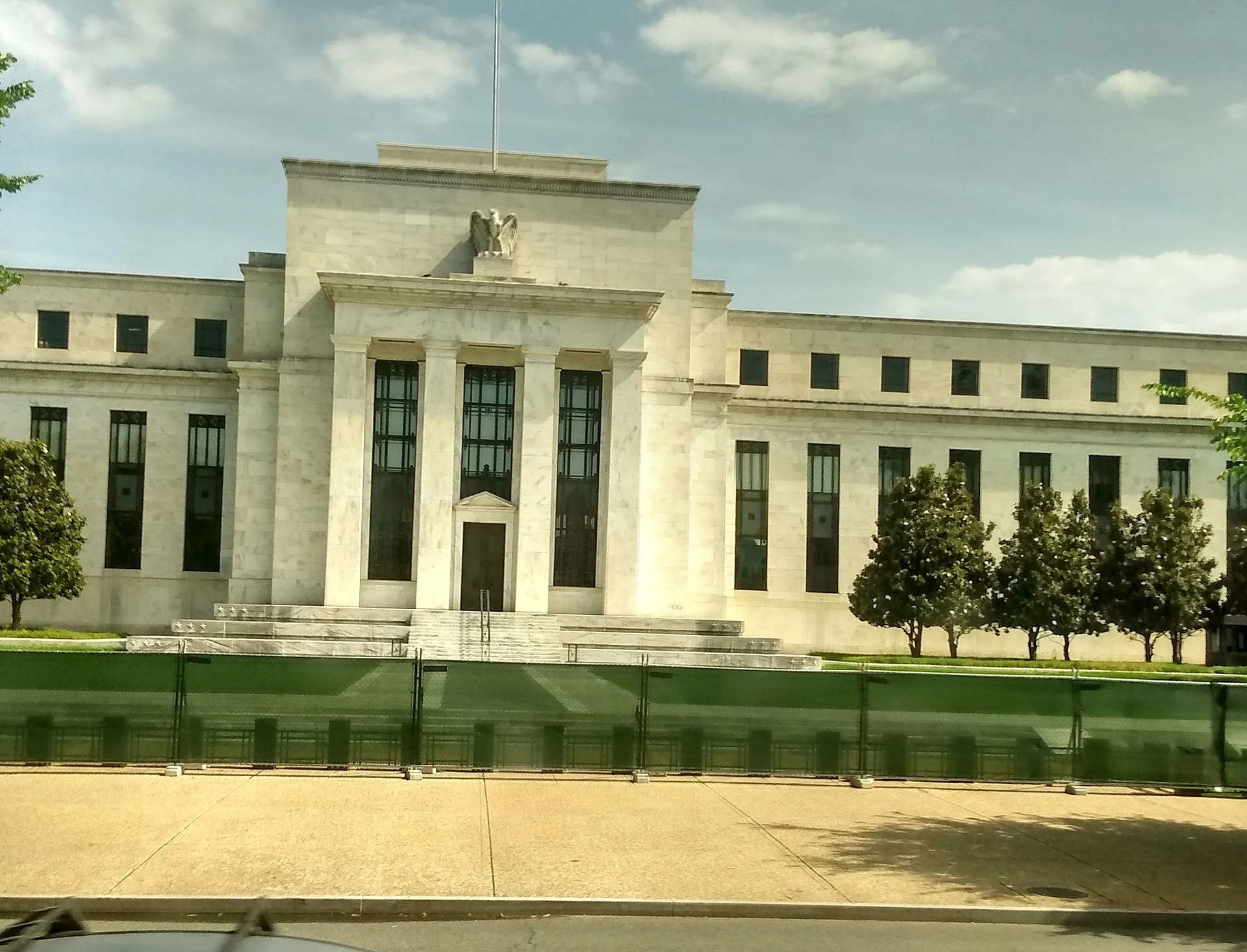David Warsh: What George W. Bush did right
Federal Reserve System headquarters, in Washington, D.C.
— Photo by DestinationFearFan
SOMERVILLE, Mass.
Before my column, called Economic Principals, goes monthly, I want to revisit what now seems to be its single most important misjudgment in forty years. While it occurred fifteen years ago, it has relevance to the present day.
The Jan, 25, 2009, edition of the weekly, “In Which George W. Bush Enters History,” I began:
George W. Bush left Washington last week amid a hail of jeers. “The Frat Boy Ships Out” headlined The Economist. “Serially incompetent,” declared the Financial Times. “Worse than Hoover,” concluded Columbia University historian Alan Brinkley.
Bush arrived in Midland, Texas, to find a cheering crowd of 20,000.
I was a little more temperate. Bush’s admirers for years had for years portrayed him as resembling Harry Truman – unpopular when leaving office, later remembered with “a tincture of admiration and regret.” A more re-illuminating comparison, I suggested, citing expert opinion, was to Woodrow Wilson (1856-1924), the last president with a faith-based foreign policy.
I said nothing about the apartheid policy that Wilson, a Virginian, reinstalled; this was before the Third Reconstruction gathered steam, George Floyd (1973-2020) and The New York Times’s 1619 project. It was a pretty good column, worth reading today, emblematic of the weekly’s style, before, a year later, I began writing the book that has preoccupied me ever since.
Wilson’s case is a good illustration of the fact that every president makes so many decisions about so many polices that it is difficult, if not impossible to single out in his day the one for which he’ll be remembered decades later, depending on the decade. Bush’s great achievement grew out of two decisions he made during the final quarter of his administration.
The second half had started badly enough with his Second Inaugural Address.
[I]t is the policy of the United States to seek and support the growth of democratic movements and institutions in every nation and culture, with the ultimate goal of ending tyranny in our world.
Then came the Hurricane Katrina flood, the plan to privatize Social Security, the two-thousandth American death in Iraq, Vice president Dick Cheney shooting a fellow fowler during a Texas partridge hunt. An old friend dates the low point as Bush’ s attempt to appoint one of his staffers to the Supreme Court.
After that, things improved. After heavy losses in the mid-term election, Bush fired Defense Secretary Donald Rumsfeld, turned away from Cheney in favor of Secretary of State Condoleezza Rice. He appointed corporate attorney and former appellate court judge John Roberts to the Supreme Court. A year later he picked Goldman Sachs chief executive Henry Paulson as Treasury secretary.
Most important, in October 2005, Bush chose Ben Bernanke an expert on the Great Depression, to be chairman of the Federal Reserve Board. Bernanke, a former Princeton University professor, had spent four years of his administration as a governor of the Federal Reserve Board, then two as chairman of the Council of Economic Advisers. The joke at the time was that Bush chose Bernanke because he wore white socks with his dark suits to White House briefings.
Bernanke had a relatively peaceful first year as chairman, but by 2007 was preparing measures behind the scenes to defuse or at least contro a slowly building crisis. By the summer of 2008, the banking system was on the verge of collapse. Even after the collapse of Lehman Brothers, in September, Paulson continued to argue that a combination of lending and takeovers by a consortium of big banks could resolve it. Bernanke and Timothy Geithner, president of the Federal Reserve Bank of New York, said no. After three days, Paulson folded his hand. Government lending to stop the crisis would be required. A day of meetings with legislators followed.
And on that Friday Bush made his second crucial decision. He walked out with the others to the Rose Garden to make an out-of-the blue plea for a something called a Troubled Asset Relief Program. Nobody seemed to know quite what it might do. Never mind that five weeks of negotiation were required to clarify the matter. By October the panic had been quelled. Last-minute lending by the Fed Reserve, backstopped by the U.S. Treasury, and ten other central banks around the world, had prevented what otherwise virtually certainly would have turned into a second Great Depression had a lawsuits race to the bottom begun.
Bush got little credit for his courage. Barack Obama defeated John McCain in November and attention quickly shifted to blame, and the steep recession that had already begun. Unemployment climbed to 10 percent, not the twenty or more that had been feared in those five desperate weeks. Ahead lay Obamacare and the Tea Party.
Like the rest of the press, I mostly missed the story at the time. Bush’s admirers turn out to have been right. That was my single worst miscalculation. Second, of course, was America’s invasion of Iraq. Like most of the rest of the mainstream press, I was for the war before it was against it. It took about four weeks to change its mind.
And the significance to the present day? It is two-fold.
The first has to do with is the carom shot that today’s is war in Ukraine. Instead of committing American forces to free the world from tyranny, the U.S. has offered intelligence and arms, and otherwise depended on the willingness of Ukrainian soldiers to repel the invaders of their homeland. Tens of thousands have died.
As Fareed Zakaria writes in the current Foreign Affairs, “America shouldn’t give up on the world it made.” Mike Johnson’s willingness to risk his speakership to build a bipartisan coalition ensure that America keeps its promises, as best it can. His choice is the true beginning of the end for Donald Trump.
David Warsh, a veteran columnist and an economic historian, is proprietor of Somerville-based economicprincipals.com
